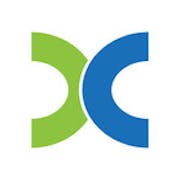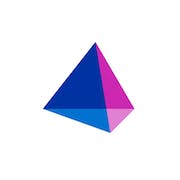Looking for the best data governance software for your business? Check out our comprehensive buyers guide to find the perfect solution for your needs! Our guide provides in-depth reviews and expert insights to help you make an informed decision. Click here to learn more!
When it comes to managing company data, there is no room for error. With the increasing amount of data being generated every second, organizations require a solution that can help them govern their data in an effective and risk-free manner. That's where data governance software comes in. By implementing data governance software, businesses can ensure that their data is properly managed, protected, and utilized in a way that aligns with their business objectives.
In this buyer's guide, we'll explore the benefits of data governance software, key considerations for selecting the right one, and top features to look for in a data governance solution. So, whether you're a small business owner or the head of a large enterprise, stay tuned to discover how implementing the right tool can help you unlock the true potential of your data!
What is data governance software?
Data governance software is a solution that helps organizations manage their data assets effectively. It is designed to enable organizations to maintain the data quality, integrity, and compliance throughout the data lifecycle, and it typically includes a suite of tools that allow users to define, capture, and document data-related policies, standards, and rules. According to State of Data Quality 2022, almost seven in ten enterprises reported that they have taken their first steps towards a data governance journey.
Here are some common use cases for data governance software:
- Defining and documenting data policies, rules, and standards: Creating and maintaining comprehensive data governance programs that ensure compliance with regulatory requirements and internal standards.
- Data quality management: Keeping high-quality data by identifying and addressing data quality issues at the source.
- Data lineage and impact analysis: Understanding the origin of their data and how it flows through their enterprise systems while also analyzing the impact of changes to the data on downstream systems and processes.
- Metadata management: Defining and managing metadata, which provides context to businesses’ data assets. This feature helps users understand the meaning, structure, and relationships of their data.
- Data ownership and stewardship: By assigning data ownership and stewardship responsibilities, the software helps organizations ensure accountability for data quality and compliance.
Data governance solutions are most commonly used by large enterprises and organizations that process large amounts of data. These can include healthcare companies, financial institutions, government agencies, and retailers. By adopting such software, organizations can ensure their data is accurate, reliable, secure, and in compliance with regulatory requirements.
Key benefits of data governance software
Data governance is becoming increasingly important for businesses of all sizes and industries. With the vast amount of data companies generate and collect, it's essential to have proper procedures in place to ensure data accuracy, integrity, and security. If you're still wondering about the importance of data governance software for businesses, here are some key benefits:
Data quality
One of the primary benefits of data governance tools is that they helps to improve the quality and reliability of your data. With an effective program in place, businesses can ensure that all their data is accurate, up-to-date, and consistent across various departments and systems.
Compliance
Data governance software helps businesses comply with various regulations, including GDPR, HIPAA, and PCI DSS, by providing comprehensive data protection mechanisms. This ensures that data is handled appropriately, protecting consumer privacy and avoiding regulatory penalties.
Risk management
With the right solution in place, businesses can better manage their data, reducing the risk of data breaches, data leaks, and other security incidents. This includes controlling the access and availability of data, as well as monitoring user activity to identify and prevent potential threats.
Efficiency
Data management can be time-consuming and resource-intensive, especially when managing large amounts of data, but by using the data management tool, businesses can automate data processes, streamline workflows, and reduce the risk of human error, improving operational efficiency.
Better decision-making
When businesses can rely on accurate and high-quality data, they can make better decisions based on real-time insights. With data governance software, decision-makers can access the right data at the right time, giving them a better understanding of their business and its operational performance.
Overall, with the increasing amount of data businesses generate and collect, proper data governance strategy is crucial. By improving data quality, complying with regulations, managing risks, automating processes, and enabling better decision-making, data governance software can help businesses achieve their desired outcomes and improve their overall performance.
10 key features of data governance software
Data governance platforms are designed with a range of robust features that enable businesses to manage their data effectively. Here are ten of the most common:
- Data quality monitoring: Data governance programs helps organizations to monitor data quality and identify data issues. Moreover, data profiling, data cleansing, and data validation capabilities ensure data accuracy and integrity.
- Data cataloging: Businesses can easily catalog their data assets, making it easy to find, access, and share data across the organization. This feature enables data discovery and ensures that data users can find the relevant data they need.
- Data lineage: Thanks to the ability to track the lineage of their data, from its creation to its current state, organizations can trace the origin of data issues and make informed data-related decisions.
- Data security and compliance: Most software come equipped with security and compliance features that help businesses to manage data confidentiality, integrity, and availability. This supports compliance with data protection laws and regulations, prevents data breaches and other data-related incidents.
- Workflow management: Data-related workflows can easily be streamlined for enhanced data management efficiency.
- User access management: By implementing the software, businesses gain granular control over users and their access to data, which means users have access to only the data they need, according to their roles and permissions.
- Collaboration and communication: Collaboration and communication among data stewards is straightforward, ensuring that everyone is on the same page about data-related processes and policies.
- Data lineage visualization: Thanks to this feature, identifying patterns and trends in the data, and understanding complex data relationships is simple. This leads to better data-driven decision-making.
- Audit and reporting: Data governance tools come equipped with audit and reporting capabilities, providing businesses with the ability to track data usage, changes, and other data-related activities and ensuring accountability and transparency across the organization.
- Support for multiple data sources: Organization are able to manage data from various systems and applications through a single platform to achieve a unified view of their data.
These ten core features are just some of the many capabilities of data governance software, designed to manage data effectively and efficiently.
Things to consider when investing into data governance solution
In today’s business world, it is vital to ensure data quality, security, and compliance with regulatory requirements, and it is no secret that purchasing data governance software can help businesses improve their data management practices. Below are some factors that you should consider when choosing the right tools for your needs.
Functionality
It's crucial to identify the specific features and functionalities required by your business. For example, if your organization deals with sensitive data, the software should have strong security features. Similarly, if you deal with large volumes of data, you'll need a solution that can handle it efficiently.
Ease of use
The software should be user-friendly and easy to use. It should have an intuitive interface that requires little to no training, allowing your staff to use it efficiently.
Scalability
The chosen solution should offer the flexibility to accommodate changes in your business. As your organization grows, it should be able to support the increasing volume and complexity of your data.
Integration
Its integration capabilities must be seamless. It should work with other systems and applications in your organization's IT infrastructure and be compatible with your existing tools and workflows.
Customization
Customization is essential – you should be able to tailor reports, alerts, and workflows to the specific requirements of your business.
Cost
Lastly, it is crucial to assess the overall value of the software, considering its cost and potential ROI. Businesses should consider not only the initial purchase price but also the cost of implementation, maintenance, and training.
The future is bright: Industry trends for data governance to look out for in the years to come
Data governance is increasingly becoming an essential aspect of modern business operations, primarily due to the uncertainties and complexities of the current business environment. As such, organizations are looking for innovative technological solutions to aid in the implementation and management of this vital process. We took a closer look at some of the emerging trends that are shaping the software in 2024 and beyond.
- Trend #1: The demand for cloud-based data governance solutions with advanced analytics capabilities to enable effective management of various data-related aspects is increasing.
- Trend #2: The need for artificial intelligence (AI) and machine learning (ML) technologies to provide enhanced automation in this area is growing rapidly.
- Trend #3: The incorporation of metadata management and lineage capabilities within data governance tools is gaining traction.
- Trend #4: There is a need for software solutions that support industry-specific regulatory requirements, such as GDPR.
These trends will continue to shape the data governance software landscape, and organizations must invest in these solutions to succeed in the modern business world.
Conclusion
In conclusion, organizations should carefully evaluate their unique requirements and select a solution that can meet their needs now and in the future. It's essential to choose a vendor that offers excellent support, ongoing maintenance, and updates to ensure the software remains effective and efficient over time. Investing in the right data governance software will help you streamline your data management practices, enhance compliance, improve the quality of data assets, and, ultimately, achieve your business goals.




